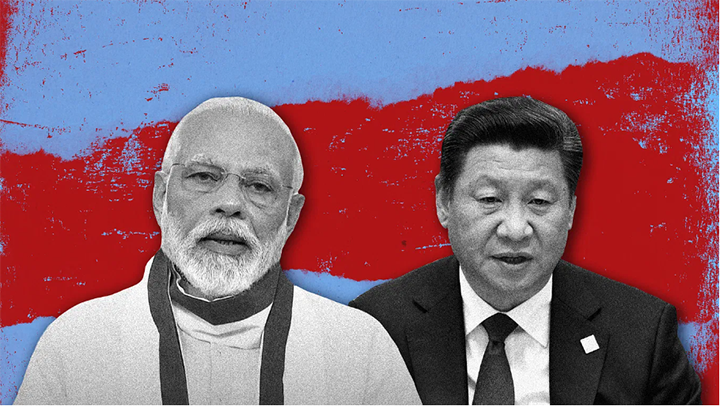We need to ask some earnest questions about India’s military power
At the outset, let me say that my heart bleeds for those killed at Galwan and for their families to whom I reach out to say: “Be strong. The Indian army stands with you in your hour of grief.”
The news of 20 soldiers killed in action and the developments over the past 24 hours along the India-China Line of Actual Control call for some serious assessment of India’s options in the face of increasingly expansionist China.
A history of two nations
In 1949, Mao Tse-tung announced that the Chinese people must either lean to the side of imperialism or to the side of socialism. “To sit on the fence is impossible. A third road does not exist.”
Throughout the 1970s, the Soviet Union displayed an increased military build-up and deployed its most sophisticated nuclear and conventional weaponry along the Sino-Soviet border. By the end of the decade, China faced 45 Soviet divisions in 1973, 150 Soviet SS-20 intermediate-range ballistic missiles, and the Soviet Backfire bomber.
Moscow was intent on coercing China to accommodate itself to Soviet interests. But China was unwilling to succumb to Soviet line of interest and stood her ground, relying on a strong mMilitary.
Preserving national interest, the Chinese have today “outgrown” themselves and indulge global engagement to improve the economy, build military power, and ultimately challenge the US too.
We must ask ourselves now: Has India evolved from a protest voice on the world stage to an active shaper of the international order?
Post-Independence, India’s strategic outlook was shaped by Jawaharlal Nehru, who viewed the West with scepticism and had a rosy view of socialist ideals. This led to a foreign policy on three key pillars: non-alignment in the international arena; preservation of autonomy in domestic affairs; and solidarity among developing nations, particularly those that had recently gained independence from colonial powers.
This policy continued throughout the Cold War, when India leaned toward the Soviet Union while deftly maintaining strategic autonomy and charting its own course in a bipolar international order.
Successive events through the mid-80s leading up to the present times saw the USSR collapse and the Indian economy grow. We championed the cause of global warming, took the lead in the war against terror, and aligned with the US. While Pakistan lost trust, China emerged as a strategic competitor against the US and its allies.
India emerged as a nation-state that could play a pivotal role in balancing against China. But are we ready to stand alone?
Can India confront China like China did against the Soviet Union? Or will we cry to Uncle Sam for help against China, the Big Bully?
True national interests
In Another “Great Debate”: The National Interest of the United States, Hans J Morgenthau suggests that it is often believed that there is an irreducible core of national interest for any state at any given time, called the vital interest of a nation.
Vital interest is that on which, if necessary, a country is prepared to go to war. It is so important for the state that it is normally willing to go to war immediately or ultimately, in order to safeguard that interest.
The vital interest of a country is supposed to be so basic that it is often regarded as permanent and primary. All other aspects of the national interest remain subordinate to it. National interest invariably has an emotional appeal to the people, including for all states, as a minimum, the protection and preservation of their independence and territorial integrity.
Cooperation, conflict, war, competition, rapprochement and all take place keeping in mind the interest of the nation at a given situation.
Given the existing environment between India-China-Pakistan, the question to be asked of our government is simply one and one alone: Does the environment threaten our nation so much, so as to necessitate going to or being prepared to go to war? If so, have we prepared our military power adequately?
National strength
What is the “strength of a nation”? One can get various theories on this aspect. However, in simple terms, it is best explained in the words of Benjamin Netanyahu, the Israeli prime minister.
In his words, a third of the Jews were destroyed 75 years ago and today, they are a force to reckon with. Stressing on national strength, he said: “The strong survive, the weak don’t survive, you make peace and alliances with the strong.”
The first requirement, therefore, is to achieve the minimum strength to ensure survival. Distinguishing between soft and hard power, Netanyahu went on to prefer hard power. What does it mean to have power?
- Military power, military hardware, intelligence, other issues important for survival. Defence and security always comes first. It costs a great deal of money, which comes from the second source of power.
- The second source is economic power, technology and industry.
- The third is political power which is possible only if military and economic power are met.
- The fourth is values and beliefs in our deep roots with our traditions and ancient cultures.
- Last is a free society in a democratic system that makes life worth living.
It would be correct to presume that in order to achieve the above, governments are responsible for correct policies and measures in national interest which includes the safety, security, and well-being of its citizens, as well as territorial integrity amongst others.
The next question that begs an answer is: Have our governments, past and present, ensured a strong military power for India? Did we plug the gaps? If so, why is it that neither Pakistan nor China have been contained? Why do our borders remain volatile? Some questions need to be left unanswered for the reader’s imagination to consider. Indeed, we have miles to go.
www.newslaundry.com





